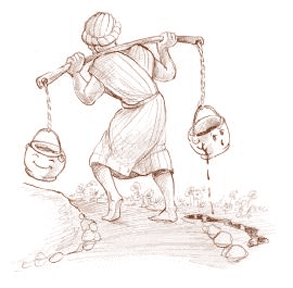 “On Wednesday, I will leave my husband of twelve years. He is a depressive. He uses prescribed medication and has available to him a phalanx of good therapists. But he also self-medicates with alcohol. He disdains therapy. He refuses to confront his disease.”
“On Wednesday, I will leave my husband of twelve years. He is a depressive. He uses prescribed medication and has available to him a phalanx of good therapists. But he also self-medicates with alcohol. He disdains therapy. He refuses to confront his disease.”
She communicated this partly as a response to my MLK piece (on how mental illness is a legitimate disease, and we should stop discriminating against “crazies”) and partly to fill me in on what was going down in her house.
I cried as I read her words. Because I ached for her. But also because it reminded me of the closest thing to an ultimatum Eric has ever issued me in our marriage of 15 years.
After twenty medication combinations failed to work and five psychiatrists couldn’t get me well, I made the mistake of flushing traditional medicine down the toilet along with my diagnosis of bipolar disorder.
I paid a medical psychic $150 to tell me the real cause of my depression and studied each of my seven chakras to figure out which one was guilty of blocking energy. I took Chinese herbs and tried acupuncture, did sacral-cranium therapy and wore magnets on my ears.
And I continued to tremble and cry.
After months of this, Eric found me in our bedroom closet kneeling in child’s pose, sobbing and shaking, as I breathed into a paper bag.
“What are you doing?” he asked.
“I didn’t want the kids to see me this way,” I explained.
“Why didn’t you call me?”
“You can’t come home every time it happens.”
He knelt down on the maroon carpet and pulled me into him, combing my hair with his fingers. He held me so tightly that his body began to shake with mine.
“What are we going to do about this?” he asked.
“It’s my fault. I’m not strong enough. Or not disciplined enough. I’m trying to train my thoughts. I’m trying so hard. But I can’t stop thinking about all the ways I could kill myself.”
“This approach isn’t working, Therese. Look at you. I think we better work with a traditional psychiatrist.”
“I’ve read the studies. The brain is plastic and I can alter its patterns through mindful meditation and breath work. I have the capacity to shift my mood and change the ratio of right-to-left activation in the prefrontal areas (which offers a barometer of the moods a person is likely to feel).”
Eric combed my hair behind my ears and pulled me in tighter still.
“Therese, when I was in the fourth grade I watched a documentary one night about Uri Geller, the world’s most famous paranormalist. He was able to bend a spoon with his thoughts. For two weeks I sat down with a spoon at the kitchen table, trying to do the same. I finally gave up, put the spoon back in the silverware drawer, and ran out to play with my friends.”
Eric paused for a minute.
“You’ve been staring at that spoon a long time.”
“But if I label myself as a manic depressive, I’m limiting myself on what I have the power to do.”
I was referring to a story I had just read by Rachel Naomi Remen, one of the first pioneers of the mind-body health field. “A label is a mask life wears,” she wrote. “Labeling sets up an expectation of life that is often so compelling we can no longer see things as they really are…. In my experience, a diagnosis is an opinion and not a prediction. What would it be like if more people allowed for the presence of the unknown, and accepted the words of their medical experts in the same way? The diagnosis is cancer. What that will mean remains to be seen.”
“I can’t be a caretaker my whole life, Therese. Your quality of life can be better. Our quality of life can be better. Let’s go to Johns Hopkins and have a team of top-notch doctors look at you.”
“They will throw out a bunch of diagnoses and pump me full of meds.”
He was growing impatient and agitated. Clearly my condition had pushed him to his threshold and beyond, and I couldn’t help but feel guilty, horribly guilty, for putting our family through this.
“I can’t keep on going into the office petrified that when I walk through the door in the evening I’m going to find you dead.” His voice cracked and he began to cry.
“Please. Do this for me,” he said.
“I’ll go,” I said. “I’ll go.”

